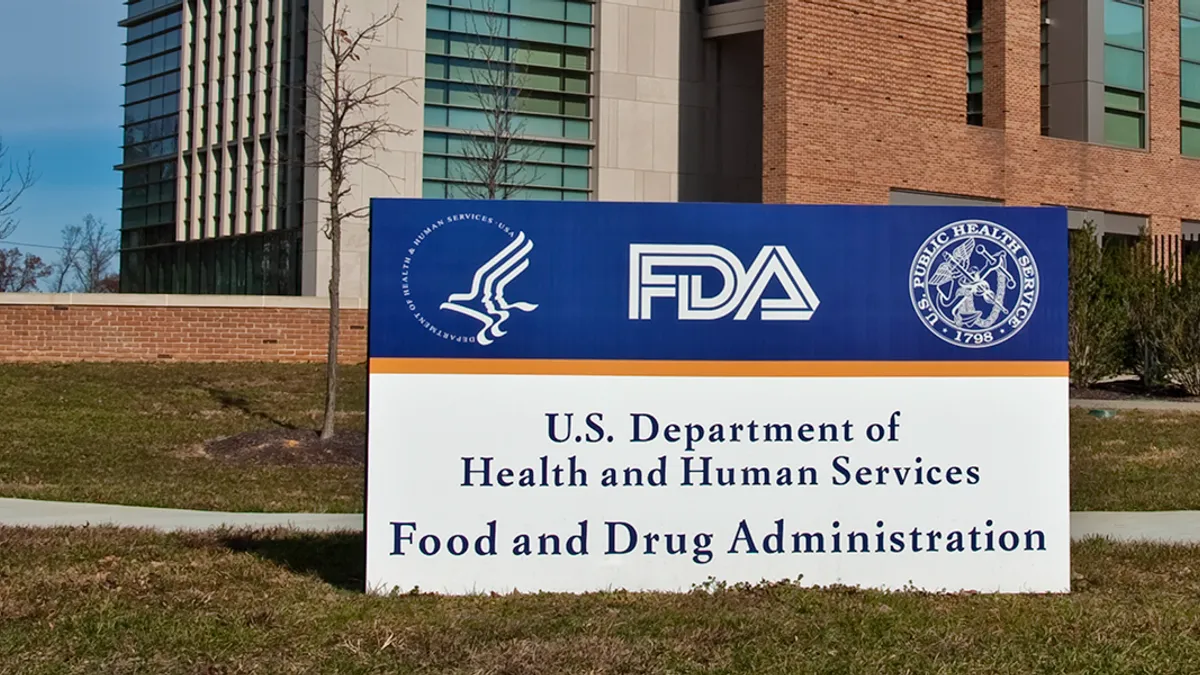Dive Brief:
- FDA's software precertification program is on track to launch another version of its working model before the end of the year and is set to launch its pilot program in 2019, Bakul Patel, associate center director for digital health at FDA, said at The MedTech Conference on Tuesday in Philadelphia.
- Despite concern from the industry's Clinical Decision Support Coalition that FDA may not have the authority to launch its pilot, Patel said FDA will work through its current authorities. The pilot, known as Pre-Cert, is intended to allow FDA to pre-clear qualified companies to update software in order to accommodate "the faster rate of development and potential for innovation in software-based products."
- Nine companies have been selected to participate in the forthcoming pilot program, including Apple, Fitbit and Johnson & Johnson. In June, FDA released the second version of its Pre-Cert working model.
Dive Insight:
Feedback on the FDA Pre-Cert program has largely focused on how the agency plans to tier companies in the program based on the amount of experience a firm has with medical devices, but Patel says the pilot program will not implement tiered membership for the nine pilot participants.
"In 2019 we are going to take the model that we have and actually try it out with the pilot participants," he said. "We're not going to establish thresholds and say you're certified at this level or that level, but we are going to conduct and exercise the entirety of the program to learn more. It would be crazy for us to set something up prematurely as thresholds and saying that's where the mark should be."
FDA will work to grant clearances to participants through its current regulatory authority, but is still working through how exactly that process will work, Patel said. The CDS Coalition, made up of software companies and others, has questioned if the agency has the authority to conduct its pilot test in 2019 or to remove SaMD from the standard 510(k) process.
Brad Thompson, general counsel for the the CDS Coalition, has argued that FDA must get authorizing statutory authority from Congress or go through formal notice and comment rulemaking to implement the Pre-Cert program.
"There are of course people that are asking us to be cautious, of course there are people who are saying that we need to go forward with this, so the whole concept of iterating and providing feedback on an ongoing basis was an important thing," Patel said.
Patel said the agency is also still working through what types of SaMD will be able to go through FDA with or without review. Throughout 2019, FDA will continue to work to create mechanisms to measure real world performance data from the pilot participants to benchmark the benefits and risks of SaMD products and work to "quickly correct adverse events related to products cleared through the model."
"From a digital health standpoint, there is a lot of great that can come of it, but there is some harm that can come from it too. We need to see more to clarify what do you do," Brian Chapman, principal at ZS, told MedTech Dive. "The old world is if you had software for interpreting blood glucose, that was strongly regulated. Now you have apps that are coming out and they are not getting the same level of scrutiny, they probably should. But it can't stifle innovation if we take the same approach that we've had."










